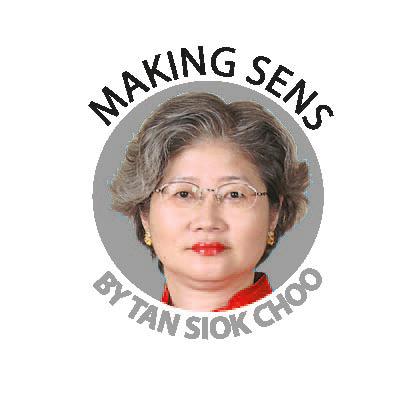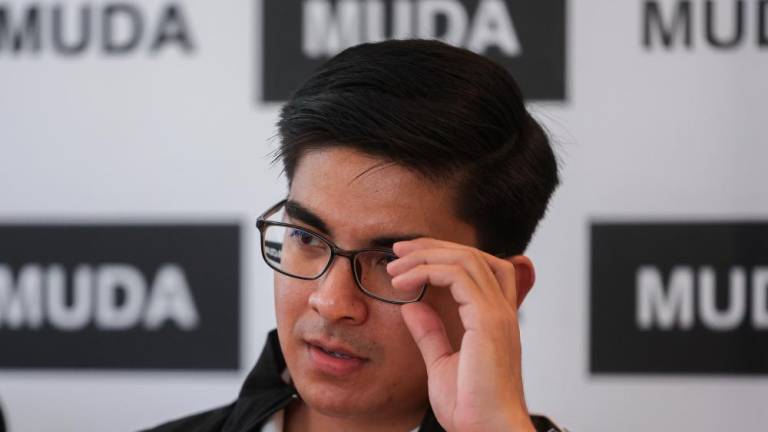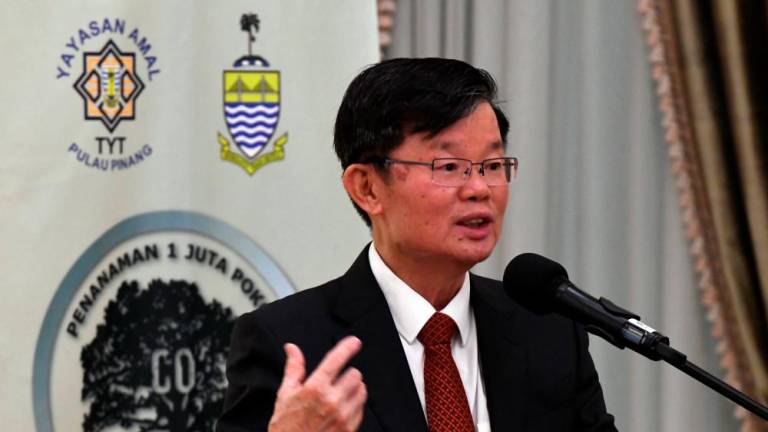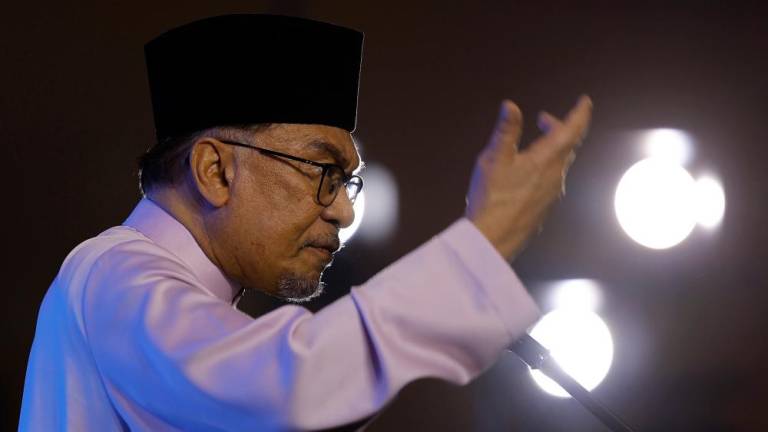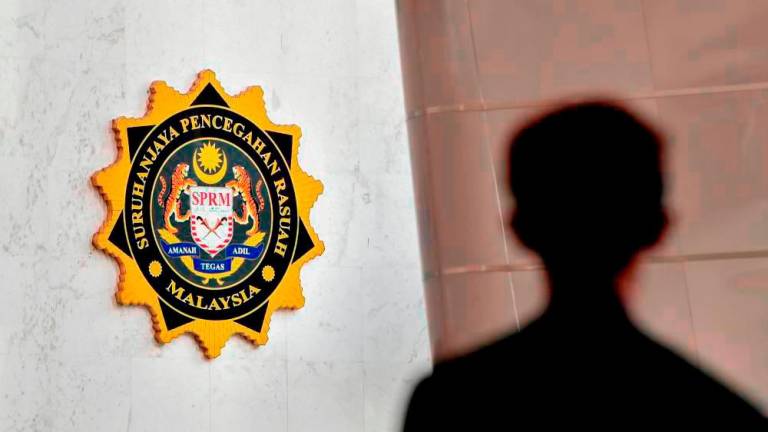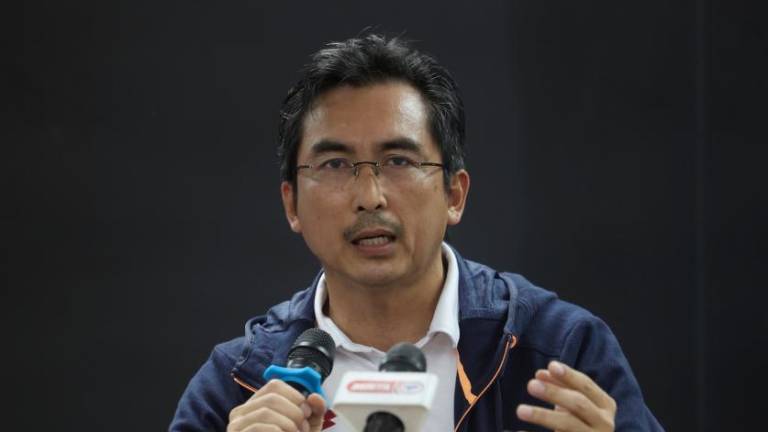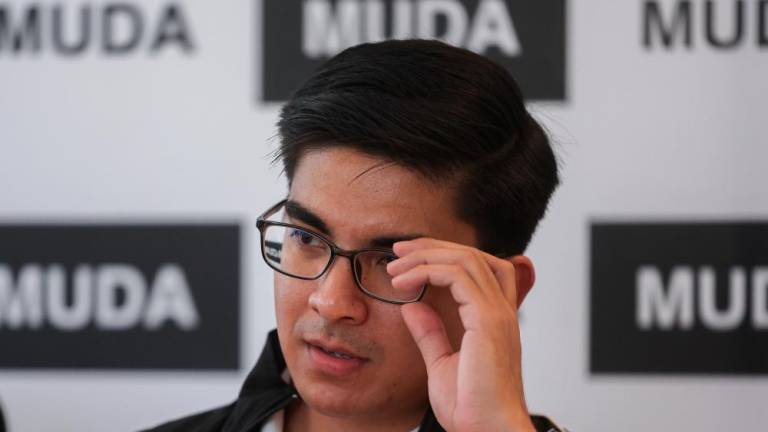THIS Saturday’s by-election in the Cameron Highlands parliamentary constituency with 32,009 voters is a four-cornered fight. However, the contest is shaping up to be a barometer of voter sentiment towards the ruling Pakatan Harapan and its rival Barisan Nasional.
The polls is the fifth by-election since the landmark 14th general election on May 9 last year ended BN’s 60-year rule in this country. All four previous by-elections – for state seats in Sungai Kandis, Balakong and Seri Setia and the parliamentary constituency of Port Dickson in Negri Sembilan – were won by Pakatan.
Several reasons suggest Harapan may find victory in the highland poll this Saturday elusive
First, Cameron Highlands is a parliamentary constituency that has been consistently won by BN since the seat was created in 2004. It is also located in Pahang, one of two BN-controlled states; the other state is Perlis.
Pahang is also the home state of former prime minister Datuk Seri Najib Razak. Given the charges of corruption, money laundering and allegations of wrongdoing levelled against him, this Saturday’s polls is an indicator of Najib’s popularity or otherwise in his own backyard.
Additionally, Jelai – the larger of two state seats in Cameron Highlands – is a BN fortress and the fiefdom of Pahang Mentri Besar Datuk Seri Wan Rosdy Wan Ismail.
Tanah Rata, the other state seat, is Pakatan’s bastion of support.
Second is BN’s canny choice of candidate – Ramli Mohd Noor, a retired assistant commissioner of police, a local guy and an orang asli who could be the first from his community to be elected a member of Parliament.
On Nov 30 last year, the Election Court ruled BN’s MIC candidate in GE14, Datuk C. Sivarraajh, was guilty of vote buying. One month later, the Election Commission banned Sivarraajh as a candidate and a voter for five years.
Both announcements were a gift to BN, enabling it to choose a candidate who is Muslim and an orang asli – thus maximising its appeal to Cameron Highlands’ two major ethnic groups.
Voters in Cameron Highlands comprise 33.5% Malays, 29.5% Chinese, 21.5% orang asli and 15% Indians and others 0.5%.
Third is PAS’s strong support for BN in this by-election. If voters in Cameron Highlands this Saturday replicate their pattern of voting in GE14, PAS supporters could theoretically enhance BN’s share of the vote to 57% against Pakatan’s almost 40% tally.
In GE14, five candidates contested in this seat: BN’s Sivarraajh won 10,307 votes, Pakatan’s M. Manogaran – the party’s current contender – secured 9,710 votes, PAS garnered 3,587 votes while the two independents obtained 680 votes and 81 votes respectively.
One analyst noted in the Sungai Kandis by-election, confusion among PAS supporters over which party to vote for denied BN the 7,573 votes the Islamic party amassed in GE14 – an outcome that denied BN victory last August.
To prevent a repetition in Cameron Highlands, PAS president Datuk Seri Abdul Hadi Awang and deputy president Tuan Ibrahim Tuan Man have campaigned together with BN.
Fourth, Pakatan has scored two own goals in Cameron Highlands that could hamper its efforts to gain greater support from a key vote bank – alleged threats to orang asli Tok Batin (village heads) and a gratuitous insult to the orang asli.
Two major imponderables are temporary occupation licences (TOLs) for growers of vegetables and flowers and Felda settlers.
Since land falls within a state’s jurisdiction, a BN MP is theoretically better placed to resolve the TOL issue than his Pakatan counterpart. Can Pakatan convince voters that despite BN ruling Pahang for more than 60 years, the TOL issue in Cameron Highlands remains unresolved?
Since Felda was initiated by Tun Abdul Razak, will its settlers remain loyal to a political party previously helmed by the founder’s son? Or will settlers hold Najib accountable for Felda’s parlous finances?
Alternatively, will Felda settlers resent Pakatan’s failure to uphold its promise to repay their debts? Will the ruling coalition be blamed for rising living costs and falling prices of rubber and palm oil – despite efforts to blunt the impact of these negative developments?
Pakatan’s biggest plus factor is Prime Minister Tun Dr Mahathir Mohamad. Scheduled to visit Cameron Highlands on the eve of polling day, Mahathir is a campaigner par excellence who can deflect significantly the multiple racial and religious issues levelled against Pakatan.
Unlike three previous by-elections for state seats necessitated by the death of the incumbents, the Election Court declared the Cameron Highlands polls in GE a nullity last November. Despite the long lead time for preparations, Pakatan’s initial campaign in the highlands was uninspiring.
If BN retains Cameron Highlands, this indicates voting along ethnic lines persists. Going forward, Pakatan must address urgently one imperative – bridging the widening racial-religious chasm among Peninsular Malaysian voters.
Opinions expressed in this article are the personal views of the writer and should not be attributed to any organisation she is connected with. She can be contacted at siokchoo@thesundaily.com




